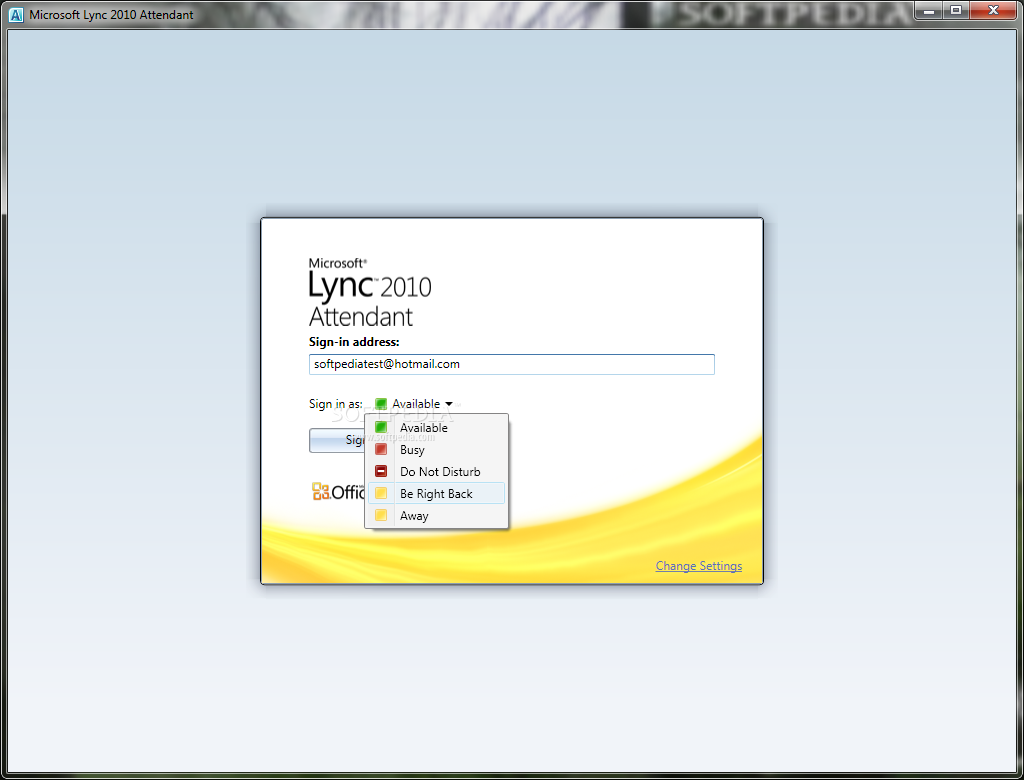
#Microsoft lync 2010 download install
Whenever the devices are upgraded to a new firmware they install the new version on the inactive partition and then reboot into that partition, effectively swapping the active/inactive partitions.

All Lync Phone Edition devices (both Tanjay and Aries families) contain two separate firmware partitions, an active partition and an inactive partition. (This is not required and an existing device may simply just need to have the current user signed-out by using the Switch User menu selection.)Īlthough the phrase “factory reset” implies that the device will be returned to original factory default settings this process does not actually return the device to a factory-shipping state. If desired, an out-of-the-box experience can be emulated on a device currently provisioned to truly test this process by performing either a hard reset or factory reset. Connect the Ethernet LAN interface to the network, and if not using Power over Ethernet (PoE) then connect the 24V DC power supply.This same process has also been used with other devices in various customer locations with just Internet access and a workstation with the Lync client installed, connected to a Edge Server. 0 software) from my home office using basic Internet connectivity and no VPN or any other bridged connection. I’ve tested this with both a CX600 and CX3000 (both Rev B devices running. 1.0.522.101) did not yet support USB tethering. Also note that for CX700 devices they must be on at least an OCS 2007 R2 firmware version, as older versions (e.g.
#Microsoft lync 2010 download software
These are common-area phone designed for internal-only applications and not for mass-deployment.Īs long as a valid IP address is handed out to the device via DHCP and a router option is included along with at least one DNS server entry than the device has everything it needs to later connect to the Edge Server on its own.īe aware that there are some pre-release beta and early revision Aries devices out there in the wild which may not follow these exact steps, so if you have one of these evaluation devices then the software may need to be upgraded to a newer version before it behaves the same as detailed in this article.

As this method uses customized DHCP options to support PIN login they will not work on a standard Internet connection in a home office or other unmanaged external sites.

Neither the CX500 nor the 6721ip device can be used externally as they do not contain USB interfaces and thus are limited to utilizing the PIN authentication process only to connect to a Lync Server. The process covered in this article is supported on the Polycom CX600 and CX3000 (and theoretically the Aastra 6725ip but I have not personally tested it ) devices in the Aries family, as well as the CX700 Tanjay device. Devices with a USB interface can be provisioned and fully-utilized externally. I recently touched on this topic in the blog article Deploying Lync Phone Edition Devices and decided it warranted its own article as it’s commonly misunderstood that all Aries devices must be first provisioned from inside a corporate network first, but that is not the always the case.


 0 kommentar(er)
0 kommentar(er)
